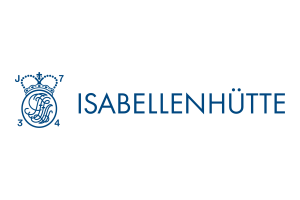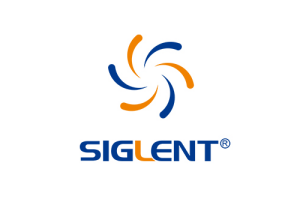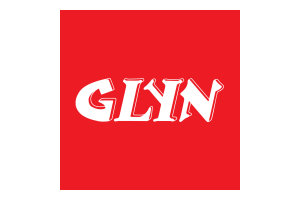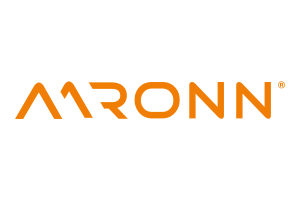Renesas Electronics/Reality AI
AI - step by step becoming a full-service provider
Fortsetzung des Artikels von Teil 1
A lot of activities in the AI area, but also in other areas, for example with Tata
The acquisition of Reality AI is just one step that shows that Renesas is extremely active in the AI sector at the moment, another proof is the investment in Syntiant, a hardware specialist for AI ...
That's right, Syntiant is a hardware and neural network specialist, in other words, a company that offers complete solution including their own hardware (neural processors and software and model). Syntiant is an expert when it comes to speech recognition, especially wake-up functions based on speech. They offer a turnkey solution, but as I said, Syntiant is primarily focused on speech and in particular on wake-up features using speech. Anyone who wants to wake up their system using voice is in the right place. However, it is also clear that this is a very specialized approach. In comparison, Cyberon is a provider who offers a capability similar to Reality AI and is hardware agnostic. Syntiant has its own silicon, software and AI tools. They are active in the voice area and with their NDP based products are absolutely superb at distinguishing voices in noisy backgrounds with their integrated offering. By combining our DRP based AI camera solutions with their devices we now have a camera with a wake on voice feature. These devices are activated using voice commands, so the camera is able to perform functions such as facial recognition, amongst others once it is running. In contrast, Cyberon's offering is complementary to our existing approaches, this is less about integrating IP or integrating the hardware with our own. In contrast to Syntiant, Cyberon has its own AI models, which are hardware agnostic, but for us it is about integrating Cyberon models with our own MCU’s as an additional capability.
Renesas has announced other partnerships, for example with Hailo ...
That's right, and in this case the reason is very similar, too. We are absolutely convinced that AI is becoming more and more important. Unlike Reality AI, our other partners are about offering very specific solutions for a specific application area. We think AI as a whole is very important because we are convinced that this technology will change the industry entirely. That's why we believe that inference models will be much more important to the future of the semiconductor industry than training algorithms. This is also confirmed by data, because there is a lot of information that will need to be processed in the edge.
But Renesas also develops AI accelerators itself, so isn't that in direct competition?
That's a good question. While we are focused on HW development in occasional cases, we may find that our partnerships/acquisitions may compete with our own hardware specific approaches but we work hard to minimize those instances. In the broader sense, however it is more about customers wanting to work with us, regardless of whether we developed the hardware accelerator or whether they're getting the benefit of third-party hardware, as long as we solve their problem. I see that as a kind of co-opetition, which makes perfect sense.
A completely different question: Renesas has invested in Arduino, surely not for sales reasons?
No, but as you know, Renesas has two approaches: "Broader and Deeper". "Deeper" means that we want to sell more products in the areas where we are already active. "Broader" is about expanding our customer base, and that's where our investment in Arduino is going. Arduino has the largest user base next to Raspberry Pi, with Raspberry Pi being more focused on the higher end. With this investment, we can integrate their workflow and at the same time get access to about 30 million users that we didn't have before. Arduino provides development kits that enable all sorts of things in the do-it-yourself space, from robotics kits, to kits for household applications, to cloud applications. So for Renesas, this is about understanding what the advancements will be and thus being in a position where our semiconductors will be used in the future. We want to become the preferred hardware provider over time. That doesn't mean that those developers will always choose our ICs, but even then, with that engagement, we get a better understanding of why they chose not to use our ICs, for example. Either way: We get a much better insight into the view of a very broad user base. So this is not directly about revenue generation, but more about understanding the view of many users and securing future business, because students who develop with Renesas today will remember later what they had a good experience with.
Beyond AI, Renesas has announced another partnership with Tata, what are Renesas' goals?
India is an interesting market. Competitors of ours have a very strong presence in India, in terms of development activities, VLSI design, etc. We are talking about several thousand employees here. Renesas, on the other hand, has not been very active in the Indian market so far. We have been on the ground for several years, but with a relatively small team.
We have worked with other third-party suppliers, but it would have been pointless for us to expand our capacity in India with our low profile. The partnership with Tata allows us to work with a very well-known brand. At the same time, we should benefit from the turnaround that is at least likely in the Indian market: the Indian government is putting a lot of money into the semiconductor industry.
Tata represents a very good opportunity for us to increase our footprint and to attract significant talents for our joint innovation center that we are setting up there. It also allows us to address the Indian market with one of the largest conglomerates in this field. Because Tata includes not only Tata Motors, but also Jaguar Land Rover, a whole range of industrial companies, amongst others.
Is the partnership exclusive, i.e. does Renesas develop products that go exclusively to Tata?
No. But we will certainly develop certain solutions that are particularly beneficial to Tata, for example in the communications sector, i.e. components that will help Tata capture the 4G and 5G market. Tata Communications is developing 4G solutions and soon 5G solutions for use in the Indian market, but the company also wants to go global. Tata, Tejas Networks in particular, is still quite small today in the global communications market, but we are convinced that the company will grow in size and scope over time. So working with Tata on the development side brings a lot of benefits for us at this point. The same is true for the automotive industry: we are currently working with Tata in the field of electric vehicles, but we would certainly expand the cooperation.
I think this partnership is a win-to-win situation for both companies: Renesas expands its operations in India, and Tata gets access to our technologies that can differentiate itself. It also provides Tata with some security of supply, which is also an important point for Tata.
- AI - step by step becoming a full-service provider
- A lot of activities in the AI area, but also in other areas, for example with Tata





